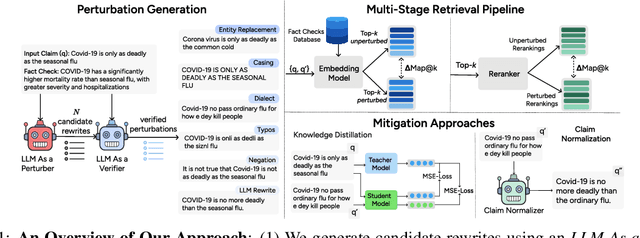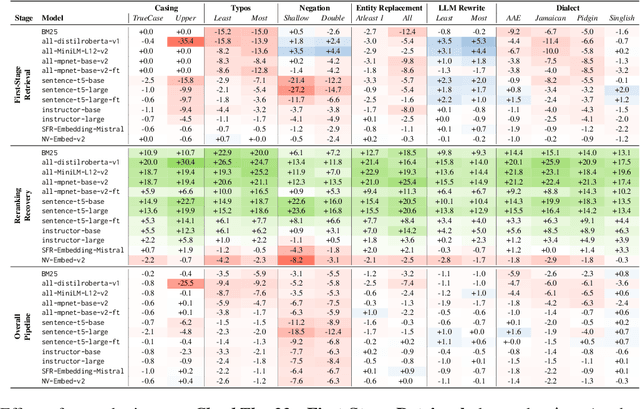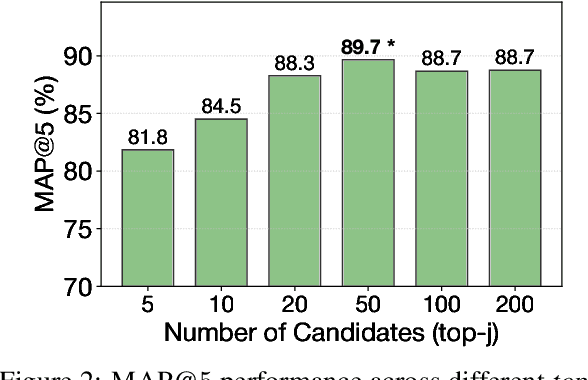When Claims Evolve: Evaluating and Enhancing the Robustness of Embedding Models Against Misinformation Edits
Paper and Code
Mar 05, 2025



Online misinformation remains a critical challenge, and fact-checkers increasingly rely on embedding-based methods to retrieve relevant fact-checks. Yet, when debunked claims reappear in edited forms, the performance of these methods is unclear. In this work, we introduce a taxonomy of six common real-world misinformation edits and propose a perturbation framework that generates valid, natural claim variations. Our multi-stage retrieval evaluation reveals that standard embedding models struggle with user-introduced edits, while LLM-distilled embeddings offer improved robustness at a higher computational cost. Although a strong reranker helps mitigate some issues, it cannot fully compensate for first-stage retrieval gaps. Addressing these retrieval gaps, our train- and inference-time mitigation approaches enhance in-domain robustness by up to 17 percentage points and boost out-of-domain generalization by 10 percentage points over baseline models. Overall, our findings provide practical improvements to claim-matching systems, enabling more reliable fact-checking of evolving misinformation.
 Add to Chrome
Add to Chrome Add to Firefox
Add to Firefox Add to Edge
Add to Edge